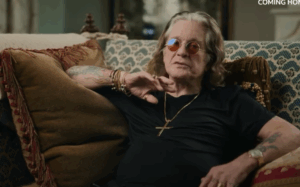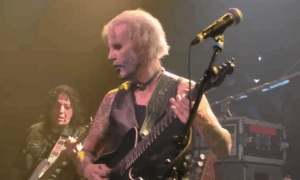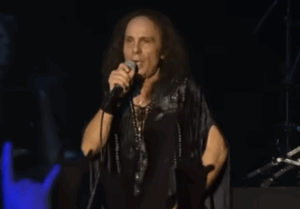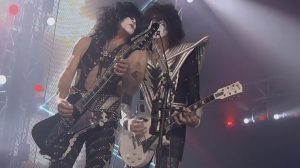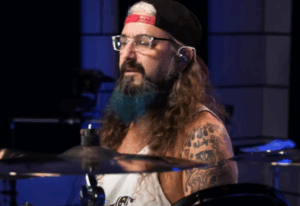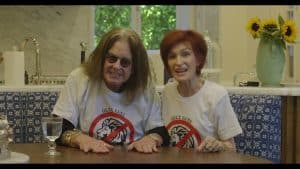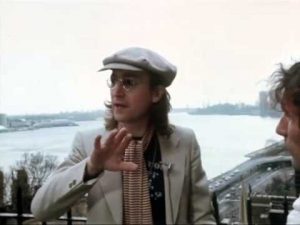The Historic Ripple Effect Of The Beatles Performing In The Ed Sullivan Show

via The Beatles / YouTube
February 9th, 1964. The Ed Sullivan Show. A frenzy unlike anything ever seen in America. The Beatles, four mop-topped lads from Liverpool, take the stage and ignite a cultural revolution. While just 728 fans were lucky enough to witness it live, the real impact unfolded across television screens nationwide.
An estimated 73 million viewers tuned in, and for many, this wasn’t just a performance. It was a revelation. It was the night countless aspiring musicians realized the dream of becoming a rockstar wasn’t just a distant fantasy, but a possibility waiting to be pursued.
This article digs into the ripple effect of that electrifying performance, exploring the stories of artists who credit The Beatles’ Sullivan Show debut as the defining moment that led to the launching of their own musical careers.
Gene Simmons Was Curious About Their Accent and Origins
Gene Simmons, the iconic bassist and co-founder of KISS, is among the countless musicians inspired by The Beatles’ historic Ed Sullivan performance. In a 2010 interview with the Liverpool Echo, Simmons recounted the profound impact the event had on him.
“It blew me away that these four boys from the middle of nowhere could make that music,” he said. Beyond the music itself, Simmons was struck by the band’s unique sound and their unfamiliar Liverpool accents. “Then they spoke and I thought ‘What are they talking like?’ We had never heard the Liverpool accent before. I thought that all British people spoke like the Queen.”
This experience, for Simmons, exemplified the power and accessibility of rock and roll. It planted the seed for what would become KISS, a band known for its theatricality, powerful music, and larger-than-life personas.
John Fogerty Wrote a Song About It
The Beatles’ performance also had a direct impact on the formation of Creedence Clearwater Revival. John Fogerty, the band’s frontman, penned the song “I Saw It On TV” inspired by the event.
Even beyond Fogerty, other members of CCR credit the show as a turning point in their musical journeys. While they were already playing together before 1964, the Beatles’ electrifying performance ignited a renewed passion for music and solidified their desire to pursue it professionally.
This newfound drive led to a band name change in 1967 (from The Golliwogs to Creedence Clearwater Revival) and ultimately propelled them to become one of the biggest draws at Woodstock just two years later.
Tom Petty: “It Was Electrifying”
Tom Petty, the legendary singer-songwriter, vividly recalled the life-altering impact of The Beatles’ Ed Sullivan Show appearance in a Guitar World interview.
“I think the whole world was watching that night,” he said, emphasizing the show’s global influence. “It certainly felt that way. You just knew it, sitting in your living room, that everything around you was changing.” Petty went on to describe the shift as dramatic, comparing it to “going from black-and-white to color.”
The excitement surrounding the event was palpable even before the performance. Petty recounted a seemingly random encounter with a kid on a bike who simply announced, “Hey, the Beatles are on TV tonight.” This exchange, though brief and unplanned, resonated with Petty, hinting at the cultural significance of the event. Witnessing the Beatles’ electrifying performance in person further solidified its impact, leaving him “flattened.”
The Show Transformed Billy Joel’s Life
In a CBS News interview, Billy Joel spoke candidly about the transformative power of The Beatles’ Ed Sullivan Show performance. “That one performance changed my life,” he declared. Prior to that night, he hadn’t even considered music as a career path.
The Beatles’ authenticity resonated deeply with Joel. He described them as “four guys who didn’t look like they’d come out of the Hollywood star mill”. Unlike the polished pop stars of the time, The Beatles wrote and performed their own music, fostering a sense of relatability. Joel was particularly struck by John Lennon’s rebellious attitude.
“He looked like he was always saying: ‘F— you!'” Joel recalled. This resonated with him, creating a sense of identification – “I know these guys, I can relate to these guys, I am these guys.” The experience served as a pivotal moment for Joel, solidifying his desire to pursue a career in rock and roll, specifically by playing in a band.
The Impact on His Sister Watching the Show Left an Impression Geddy Lee
In his autobiography, My Effin’ Life, Rush frontman Geddy Lee offers a personal anecdote about the legendary Ed Sullivan live show. Describing the scene from his childhood home, Lee recalls his sister’s intense reaction.
“Suddenly there was my sister kneeling on the floor in front of the television, crying and reaching for the TV screen as if she might touch the Fab Four and have one of them all to herself,” he writes. Lee admits to feeling amusement initially, questioning his sister’s behavior. Yet, witnessing the profound impact rock and roll had on her left a lasting impression.
He acknowledged the contrasting reactions within the family: “Needless to say, our parents were singularly unimpressed,” but the music undeniably entered their household. Lee concluded with his mother’s prophetic words: “As my mom would say, ‘De rest is history.'”
Steve Lukather: “Life Went From Black and White to Color”
Grammy-winning guitarist Steve Lukather shared a vivid memory of the iconic Beatles TV appearance in an interview with Louder. Lukather employed a colorful metaphor to describe the event’s monumental impact.
“When the Beatles were on Ed Sullivan,” he said, “life went from black and white to color like in The Wizard of Oz.” This simple comparison effectively conveys the dramatic shift in the cultural landscape that The Beatles’ performance ushered in.
Lukather even injects a dash of humor by acknowledging the irony of his own career path. “The irony,” he continues, “I’m in the band Toto is not lost on me.” This playful remark highlights the undeniable influence The Beatles had on countless musicians, including himself, who went on to shape the future of rock and roll.
The Event’s Star-Studded Legacy
The Ed Sullivan Show performance by The Beatles wasn’t just a cultural phenomenon; it became a launchpad for countless musical careers. Bruce Springsteen, Joe Perry, Richie Sambora, Nancy Wilson, Chrissie Hynde – these are just a few of the iconic names who credit the show with igniting their passion for music. The sheer number of artists inspired by that single performance is staggering.
It’s tempting to wonder if such a singular, unifying moment will ever be replicated. The Eras Tour on Disney+, attracting legions of devoted Swifties, might seem like a contender. However, the media landscape has fundamentally shifted.
Radio and television, once central hubs for cultural moments, now compete with the vast and fragmented online world. While music continues to evolve in exciting ways, capturing the collective attention of a nation in the same way The Beatles did on Ed Sullivan seems like a relic of a bygone era.





